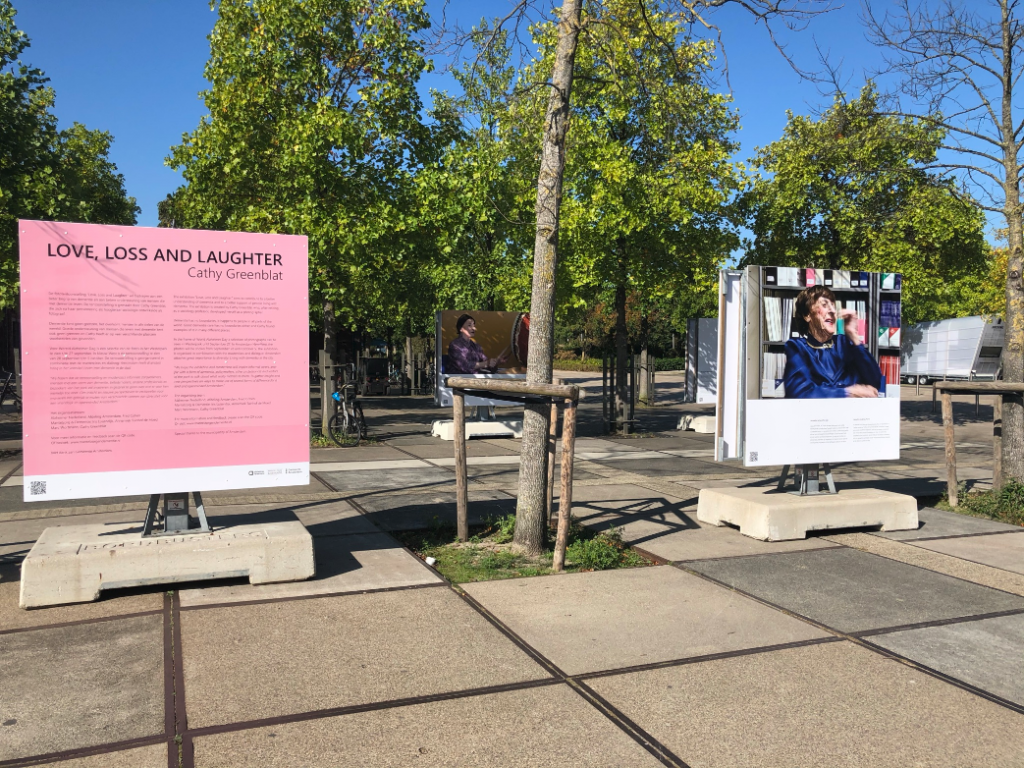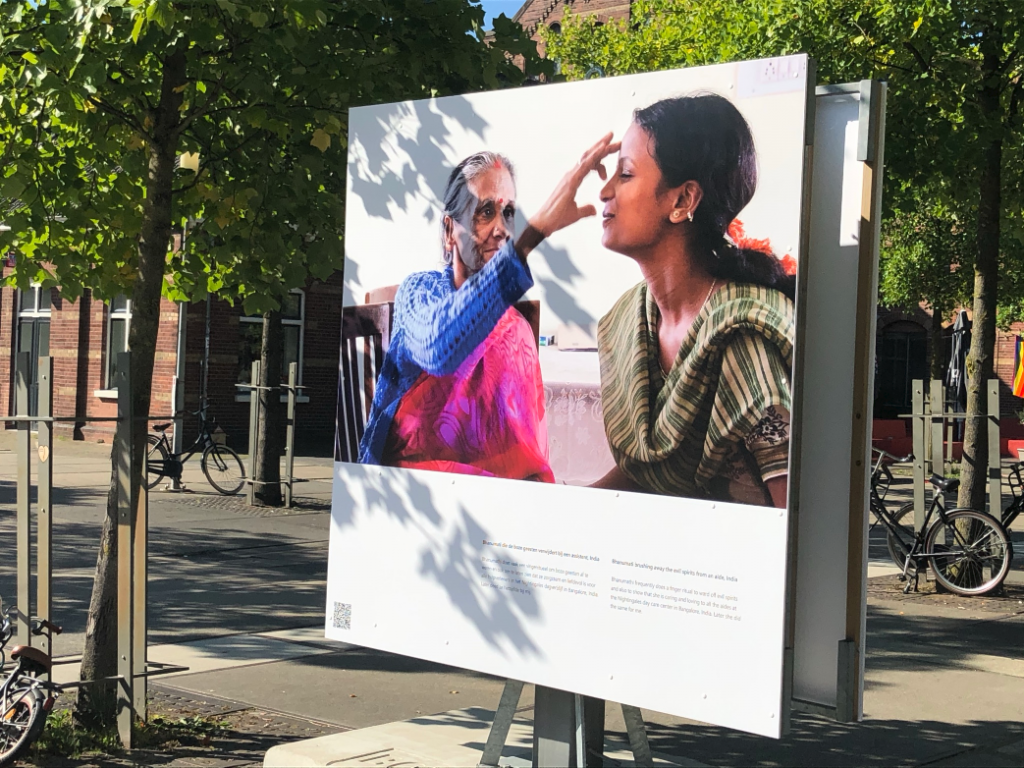Love, Loss and Laughter photo exhibition re-launched in Amsterdam
World Alzheimer’s Day was created in 1994 by Alzheimer’s Disease International and the World Health Organization to raise more awareness about Alzheimer’s disease and other dementias. It is a call to action and every year more and more activities are developed around the world on this date and even during the whole month of September. Most of these are local and organized by Alzheimer associations or their chapters in the local community.
This year I had the privilege to work with the Amsterdam chapter of Alzheimer Netherlands on a small photo exhibition and seminar on dementia and diversity. Small because of the restrictions around Covid-19 which forced us to be creative in our approach.
Photo exhibition
The photo exhibition was placed in a park where keeping social distance was easy to manage. It is a good tool to raise awareness because a picture tells more than a thousand words. This is the case with the photo exhibition “Love, Loss and Laughter” that has helped a lot to get a better understanding of people who are living with dementia and how they can be better understood, loved and cared for.
The exhibition was created by Cathy Greenblat who, after retiring as a sociology professor, developed new skills as photographer, specialized in picturing dementia care and end-of-life care.
The exhibition has been showcased in multiple places in the USA, France, United Kingdom, Switzerland, Italy, India, and Australia, often with the help of Alzheimer associations and Alzheimer’s Disease International, their global peak body.
The main goal of the exhibition is to change the stereotypical view of people with dementia. Yes, there is decline in cognitive functioning, but people have a life and are a person with feelings who need love and care.
If they receive enough of this, they can live their lives with humor, laughter, and celebration and most importantly, dignity.
Seminar
After opening the exhibit we continued with a mixed online and offline event involving all stakeholders (people with cognitive problems, family caregivers, care providers, case managers, researchers and other experts) around the topic of providing dementia care in a very diverse city where people live from 170 nationalities around the world.
Although time was too short to solve all the issues, there was a kind of mutual understanding that it is important to take into account all the different backgrounds, cultures and religions of people but also that it is impossible to match care seekers and care providers with the same background perfectly. That means that all care provision needs to be aware of these differences and have the flexibility to respond to it in an appropriate way and with respect to the person.
It was encouraging to see that the city of Amsterdam has developed a policy to deal with dementia and aims to make the city dementia friendly of which a key element is to coordinate the work at the level of each part of the city and take specific circumstances of different boroughs into account.
For me it was a good experience to see how high-level principles that are developed at international level need to be translated – not only nationally but within a country also regionally and locally and finally at community level. It is easy to develop a concept like Dementia Friendly Communities, but the real work is making that happen in day-to-day life of people with dementia and their families and involve them in practical measures regarding care and support.
Marc Wortmann
September 2020


